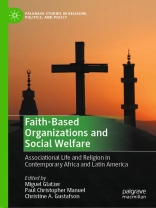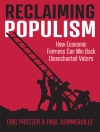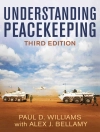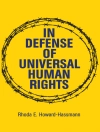The case studies in this volume examine the activities of faith-based institutions in a representative sample of African and Latin American countries, including societies with and without a dominant religious tradition, and states with different levels and types of government-provided social services. Among other questions, the chapters examine the types of social service activities faith-based organizations engage in; their effect on civil society and democratic processes; their influence on the character of local and national communities; and what new pressures would be brought to bear on state-provided services if these faith-based organizations ceased to exist.
Table des matières
Part 1: Theoretical Considerations.- Chapter 1. Religion, Faith-Based Organizations and Welfare Delivery in Contemporary Africa and Latin America (
Miguel Glatzer, Paul Christopher Manuel, and Christine A. Gustafson).- Chapter 2. The Complex Context for Social Welfare and Human Capacity Strategies in Africa (
Katherine Marshall).- Chapter 3.“Africa is not a country”: General Overview of Faith-based Services and Social Welfare in Africa (
Nadine Bowers Du Toit and Barnabe Anzuruni Msabah).- Part 2: Societies With a Dominant Religious Marketplace.- Chapter 4. Muslim NGOs in Contemporary Ghana (
Holger Weiss).- Chapter 5. Faith-based Organizations and the Challenge of Developmental Social Welfare in Democratic South Africa (
Ignatius Swart) .- Chapter 6. Evolutionary Effectiveness of Faith-based Organizations Public Agency in Kenya (
Richard Muko Ochanda, and Humphrey Waliang’i Wafula).- Chapter 7. From Prominence to Derision? Chile’s Religious Actors Confront a Turning Point in their Social Welfare Roles (
Mathew Carnes and Raimundo Salas Schweikart).- Chapter 8. The Church of the Poor, Civil Society, and Democracy in Southern Mexico: Oaxaca 1960s–2010s (
Juan Manuel Lombera).- Part 3: Societies with Mixed Religious Marketplaces.- Chapter 9. Faith-based Organizations, Society, and the State in Chad (
Mayke Kaag).- Chapter 10. Faith-based Organizations and Social Welfare: Associational Life and Religion in Nigeria (
Omobolaji O. Olarinmoye).- Chapter 11. Faith-based Organizations, Society, and the State in Mozambique (
Victoria Armando Chifeche).- Chapter 12. The Contributions of Faith-based Organizations in Uruguay: The most Secularized Sountry in Latin America (
Néstor Da Costa).
A propos de l’auteur
Miguel Glatzer is professor of political science at La Salle University in Philadelphia.
Christine A. Gustafson is professor of politics at Saint Anselm College in New Hampshire.
Paul Manuelis a research fellow at the Berkley Center for Religion, Peace, and World Affairs at Georgetown












